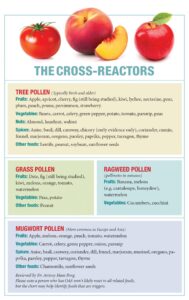Everything You Need To Know About A Data Analytics Degree
2 min read
If you’re interested in pursuing a career in data analysis, obtaining a degree in data analytics can provide you with the skills and knowledge necessary to succeed. The field of data analytics involves using statistical methods and tools to analyze large datasets and extract meaningful insights that can inform business decisions. With a data analytics degree, you can work as a data analyst, data scientist, or business intelligence analyst, among other roles.
When it comes to choosing the best colleges for data analytics, there are several factors to consider. Some of the best colleges for data analytics offer strong programs in statistics, computer science, and mathematics, which can provide a solid foundation for a career in this field. Additionally, look for schools that have partnerships with local businesses and organizations, as these connections can lead to valuable internship opportunities and job placements after graduation.
Curriculum and coursework:
A typical data analytics degree program covers a wide range of topics, including statistics, data visualization, machine learning, database management, programming languages (such as Python, R, and SQL), and data mining techniques. The curriculum is designed to provide students with a strong foundation in quantitative analysis, data manipulation, and predictive modeling, along with hands-on experience using industry-standard tools and technologies. Additionally, some programs offer elective courses or concentrations in specialized areas such as business analytics, healthcare analytics, or big data analytics, allowing students to tailor their education to their specific interests and career goals.
Skills acquired:
Pursuing a degree in data analytics equips students with a diverse set of skills that are highly sought after in today’s job market. These include:
Data analysis: Proficiency in collecting, cleaning, and analyzing large datasets to identify trends, patterns, and insights that can inform decision-making and strategy development.
Statistical modeling: Knowledge of statistical methods and techniques for hypothesis testing, regression analysis, and predictive modeling to uncover relationships and make data-driven predictions.
Data visualization: Ability to create visual representations of data using charts, graphs, and interactive dashboards to communicate findings effectively to stakeholders.
Problem-solving: Strong analytical and critical thinking skills to approach complex business problems, formulate hypotheses, and develop data-driven solutions.
Communication: Ability to articulate findings and insights in a clear and concise manner to non-technical audiences, including executives, managers, and other stakeholders.



